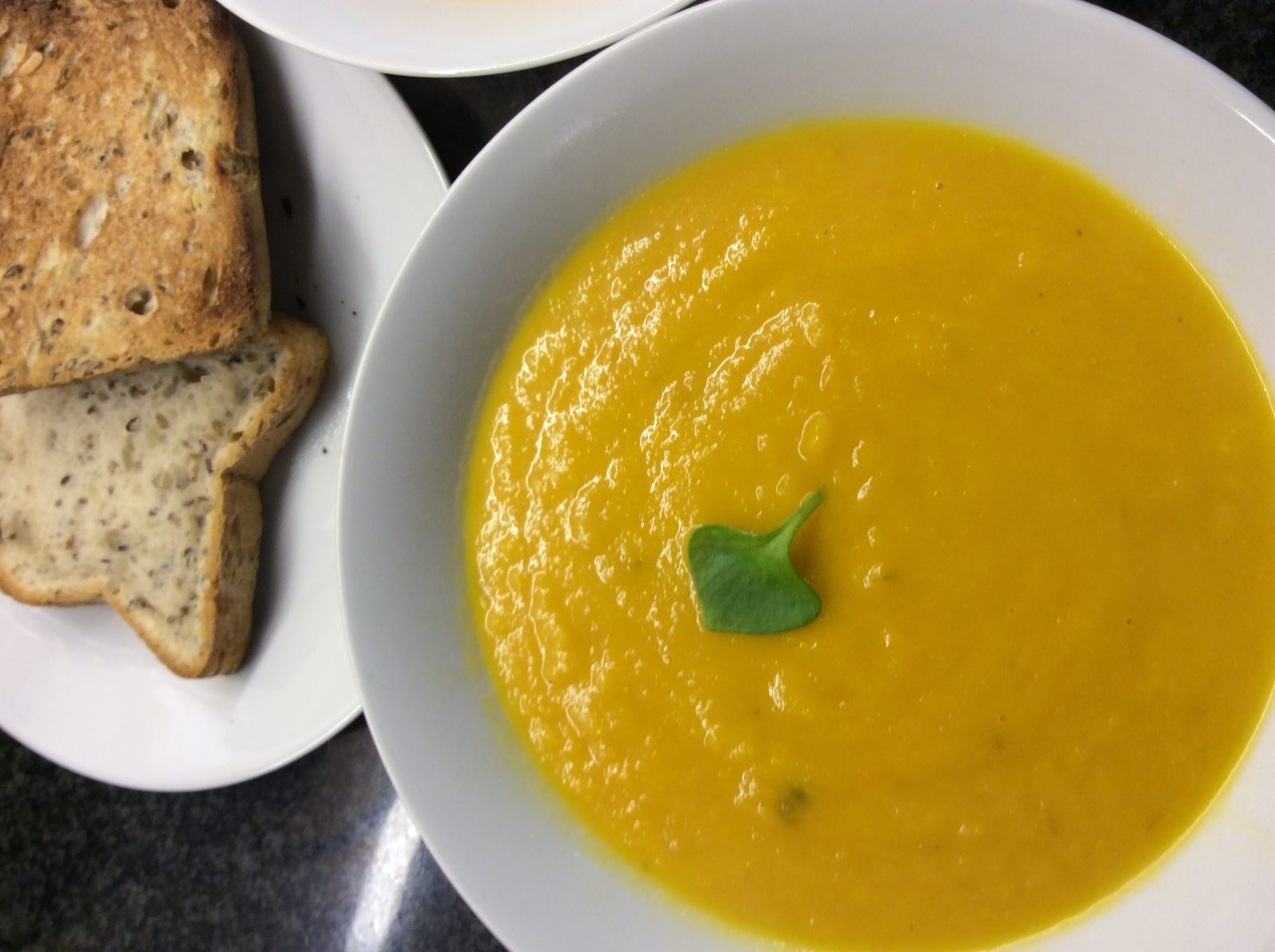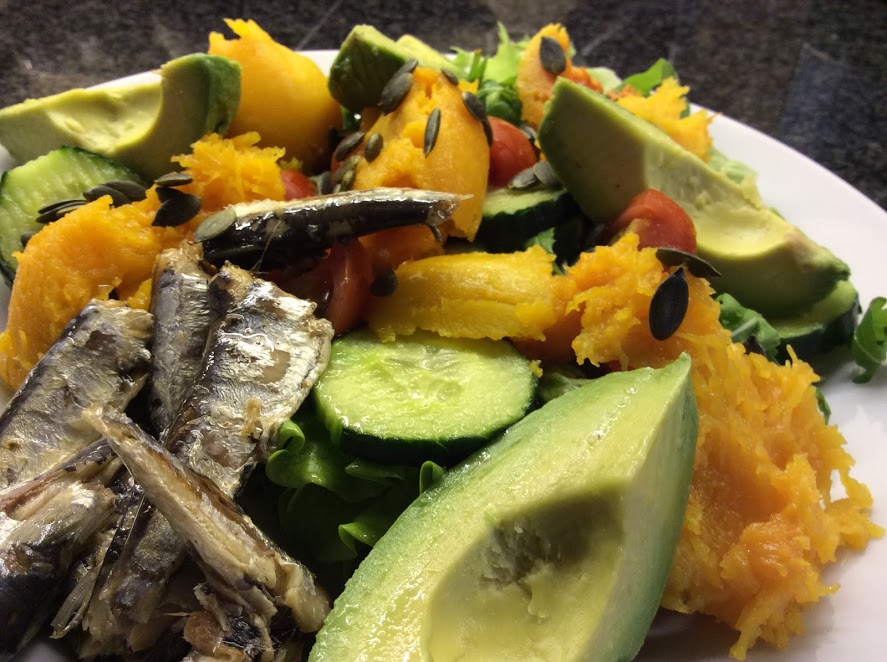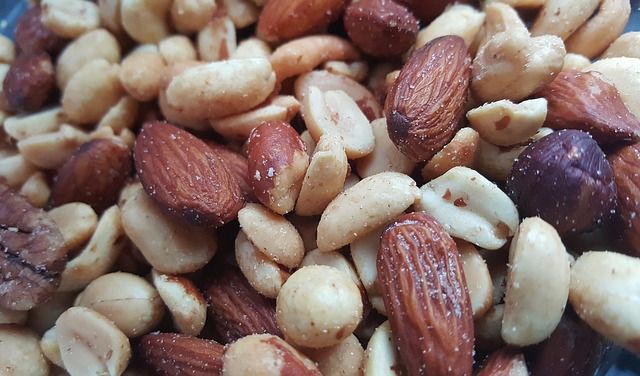One of the most common treatable factors that we see affecting our patients with chronic pain is non-celiac gluten sensitivity (NCGS). These folks test negative for celiac disease, but they have health problems that go away when they are on a strict gluten-free diet … and return when they eat gluten, even in trace amounts. While there has been very limited scientific research to explain this phenomenon, it is very obvious to every single provider who has used it with their patients that NCGS is very real and very important. I have personally observed improvements in joint pains, muscle aches, fatigue, depression, anxiety, asthma, eczema, thyroid problems, obesity, diabetes, blood pressure, memory, sleep and many autoimmune diseases in patients who have gone gluten-free.
This study provides evidence that people with NCGS have a leakier gut than those without it. It comes as no surprise to me, but it should help keep the skeptics quiet for awhile. I have long believed that true innovation in healthcare has and always will begin with forward-thinking doctors and patients who are willing to try new things and observe the results. It is unfortunate that it has taken a global juggernaut and a multi-billion dollar industry to stimulate this kind of research. There are dozens of other important ‘discoveries’ that are being used by integrative practitioners and these need to be validated by good science. Smart researchers should pay more attention to what these doctors are doing, because there are many breakthroughs that are waiting to be made.
A nice article on the study is here: http://newsroom.cumc.columbia.edu/blog/2016/07/26/columbia-researchers-find-biological-explanation-wheat-sensitivity-2/
How to heal a leaky gut? There are many ways. The short answer is to see an integrative practitioner.
Then this is an article from the Scientist that was commissioned to research for a recent BBC Horizon program …….
Obesity and other diet-related illnesses are easily the greatest public health problem of our time. But losing weight and keeping it off is incredibly difficult; it is not what we are evolved to do.
Over the past 20 years, my research at the University of Cambridge’s MRC Metabolic Diseases Unit has focused on the genetics of why some people get fat and some don’t. Science is set up to get to the truth eventually. It does not provide quick answers.
As a result, there are many desperate people looking for a way out, a silver bullet. Over recent years, a proliferation of, by and large, skinny and attractive food gurus armed with dietary advice that is not based on any serious scientific evidence.
Much of this new advice goes far beyond healthy eating, and in some instances argues that food can actually make you well. Welcome to the world of “clean eating,” which I have spent the last few months investigating for a BBC documentary, to understand just how scientific these claims really are.
It became clear that many hundreds of thousands of people are more likely to believe the advice of these food gurus — buying their books and following their social media feeds — than listen to scientists and other experts who are taking an evidence-based approach to nutrition.For healthy-eating devotees, Instagramming everything that passes their lips, the term #clean reigns supreme. Clean eating is not one way of eating, but encompasses many different dietary approaches. In the documentary, we focused on three of the big beasts: giving up gluten, an alkaline diet and a plant-based diet. via How clean eating became a dirty word as food gurus distance themselves from the trend that made them famous“]
So I question many of the statements made in this article and subsequent program.
- “losing weight and keeping it off is incredibly difficult, it is not what we are evolved to do.” From a scientist that studies genetics and obesity I have to assume that he thinks as a race we should all be fat and unhealthy then.
- “Much of this new advice goes far beyond healthy eating and in some instances argues that food can actually make you well.” Thomas Edison said “the doctor of the future will give no medicine but will interest his patients in the care of the human frame, in diet and in the cause and prevention of disease.” This has been the premise that all Nutritional and Functional Medicine is based on – food can make you well.
- He has studied Metabolic diseases for 20 years and claims that Science does not provide quick answers and that people would rather follow ‘Clean Eating’ gurus than listen to evidenced-based scientists and other experts.
- He claims that what is being promoted is not based on any serious scientific evidence so maybe he hasn’t had time to read the 10,000 plus articles on PubMed, peer reviewed medical studies or research nutrition at all.
What we are seeing now is a massive trend of people taking responsibility for their health and fitness. People realising that the advice to eat low fat and consume processed vegetable oils and fats from mainstream science, Government and most Doctors has been wrong and has actually lead to one of the worst epidemics of chronic disease worldwide.
Twenty years ago we thought that there was a genetic reason of all chronic disease but now we have mapped our human genome we realise that what we eat can change how those genes react – not the other way round.
The so called ‘trend’ towards healthier eating and understanding how important Nutrition is to our wellbeing started more than 30 Years ago. For me it started with a book ‘Nutritional Medicine’ by Dr Stephen Davies (Oxford) and Dr Alan Stewart (Guy’s Hospital London) who were members of the British Society for Nutritional Medicine. This book was published in 1987 and it changed my life. I was a nurse at Charing Cross Hospital but always more interested in preventative medicine than mainstream.
Over the years I was influenced by ‘Gurus’……
such as Dr. Jeffrey Bland and trained in Nutritional Medicine myself. Now the ‘Gurus’ at the forefront of modern Functional Medicine are able to influence and educate far more people by online Forums and Seminars.
Dr. David Perlmutter, Dr. Frank Lipman, Dr.Mark Hyman, Dr Josh Axe, Dr. Terry Wahls – who reversed her own MS and is now back teaching, plus all the hundreds of other Doctors and Nutritionists working tirelessly to further the fight against our epidemic of Chronic disease. Dr. Andreas Eenfeld needs special mention for his work in helping the world to understand and reverse Diabetes by going against mainstream views and proving what actually works. Also Dr. Alessio Fasano for his brilliant work as a scientist who is getting to the root of what is going wrong in our gut and microbiome – although they interviewed him on the program they managed to discredit the importance of his work by separating his research on gluten/gliadin and gut damage from how what we eat is fundamental. Two other books ‘Clean Gut’ and ‘Clean Eats’ by Alejundro Junger MD helped me navigate a good elimination diet and get to the bottom of several food intolerances and reverse Autoimmune problems in both me and my son.
The lovely Ella from ‘Deliciously Ella’ was also on the program explaining how changing her diet had made her well again and sharing her passion for real, fresh food. There are many others doing the same – promoting the fact that fresh food is far healthier than anything produced in factories. Encouraging people to cook instead of buying packaged food or take-aways, surely this is a good thing? Surely this is what is fueling the massive success of people like Ella and Joe Wicks The Body Coach – by the fact that they can show results – evidence based nutrition. Why does anyone want to make programs to put us off doing this? But the program ended by visiting a place in the USA that treats a handful of ill people – who often have terminal cancer and who sometimes die. As with most bad reporting,they have to show an extreme example and pretend that it is linked to their main hypothesis.
One of my favourite Gurus is Sarah Ballantyne PhD who developed The Autoimmune Protocol that has helped so many people with Autoimmune disease and furthered scientific discovery. Here is an a review showing some of the successes and breakthroughs that are changing the face of medicine.
[If the stories compiled on our site and from the worldwide community are anything to show, the Autoimmune Protocol has helped a great many people with autoimmune disease live healthier, fuller lives. Many of us discovered this way of eating and jumped in as early adopters, before the research had time to catch up with us. I, for one thing, am happy I did, as I would not be healthy and happy today had I not made that leap! A lot of people get hung up on the fact that for the most part, the medical community does not acknowledge or support this intervention for managing autoimmune disease. Let’s be real though — times are changing (more on that in a minute!).
Research is one of the missing links to this acceptance, because it starts the conversation about how and why these interventions might be working, and informs doctors on what to recommend to their patients. I am eternally grateful for the work of people like Sarah Ballantyne, PhD, who presented a refined version of the Autoimmune Protocol in her book The Paleo Approach, and Terry Wahls, M.D., who in addition to her book The Wahls Protocol has raised funding and conducted clinical trials using dietary and lifestyle interventions to manage multiple sclerosis. These contributions have begun to ground the Autoimmune Protocol in the scientific landscape, which is essential if we are to get anywhere in getting the medical system to make these important shifts in philosophy.
A new study on the Autoimmune Protocol and rheumatoid arthritis
Julianne Taylor, as a part of her Post Grad Dip Sci in Human Nutrition, conducted a qualitative study research project for Massey University in Auckland, New Zealand. I’ve been following Julianne and her writing since the beginning of my journey, as she was one of the first people I found online writing about her personal experience using ancestral principles and the elimination diet in order to manage autoimmune disease (her blog was one that helped me decide to personally take on the protocol!). In the study, she interviewed those who had experienced success with rheumatoid arthritis in order to find out more information about management with dietary interventions. For those who are interested in this research, I’m presenting a summary here.
Aims of the study:
- To find out what motivated people to change their diet in the first place.
- To discover which challenges they encountered changing and maintaining the diet.
- To learn how they managed those challenges.
- To find out which foods they consumed and which presented symptoms on reintroduction.
Julianne found 10 participants from ages 28-60, with a positive RA diagnosis who had been following the Autoimmune Protocol or similar elimination diet for 6 months to 5 years and had reduced their disease symptoms or clinical markers. She interviewed every participant on a variety of topics and presented a summary of her findings.
Some of the findings I found interesting (although not surprising!):
- Some of the study participants were encouraged to try the Autoimmune Protocol from alternative healthcare professionals (the system is changing, folks!).
- Many participants found their conventional doctors to be unsupportive of their nutritional choices, and chose to work with a combination of both natural and conventional practitioners.
- Those that participated in the study were convinced to try it because of a blend of science as well as anecdotal evidence.
- One participant found relief on a strict Whole 30 Paleo-style diet and did not take out additional foods, while the rest of the participants did.
- Both mental and physical preparation were key at making the dietary transition work for those who participated (what do I always say — set yourself up for success!).
- Everyone who participated in the study shared that there was one important person who supported them in their transition, either emotionally or physically. Many helpers assisted by shopping for and cooking food (this is huge!).
- 80% of the participants switched overnight, while 20% made gradual changes. Many chose dates to start that were clear from family celebrations or events that would create difficulties.
- The two biggest challenges for participants were eating away from home and lack of support from friends and family.
- Adherence to the the diet was very high, over 95% for all but one participant who was at 85% compliance, and avoidance of pain was the primary motivating factor.
- The dietary changes were difficult to implement, but became easier as time progressed.
- The main dietary challenges for participants were the time it took to prepare meals, lack of convenience foods, high cost of food, eating out, travel, and lack of understanding.
- Every participant experienced health improvements besides a reduction in their rheumatoid arthritis symptoms — there was weight gain or loss, if the person needed it.
I found these reintroduction findings particularly interesting:
- Most participants used a unique reintroduction protocol — some focused on the one in The Paleo Approach, Reintroducing Foods on the Paleo Autoimmune Protocol, relied on advice from their healthcare providers, or blended that with their intuition to customize an approach.
- Some participants had been on a standard Paleo diet before trying the elimination diet to successfully pinpoint additional sensitivities.
- The most common sensitivities found in the group as a whole were wheat, dairy, eggs, and corn.
- Other sensitivities found in some participants but not others, were rice, nightshade vegetables, rancid and heated seed oils, and soy.
- Every participant had foods they reacted to in a way that was different from a rheumatoid arthritis flare.
While this study was not randomized and controlled and leaves a lot of questions unanswered, it offers a fantastic starting place for other researchers developing interest, seeking funding, and conducting more in-depth studies on why these dietary and lifestyle interventions are working for people. We can only hope that as time progresses, there will be more research and discovery that will enable doctors to fine-tune dietary interventions to best manage autoimmune disease.
If you’d like to learn more about Julianne and read some of her writing, check out her blog Paleo Zone Nutrition. You can contact her directly to request to see the study. She is also publishing a series of blog posts on the topic.
A clinical trial using the Autoimmune Protocol is underway
Dr. Gauree Konijeti, M.D., M.P.H., director of the inflammatory bowel disease program division of gastroenterology at Scripps University in San Diego will be running a clinical study titled “Efficacy of the Autoimmune Protocol Diet for Inflammatory Bowel Disease” this fall. Dr. Konijeti will be using Angie Alt’s online program SAD to AIP in SIX to study outcomes in patients with Crohn’s and ulcerative colitis using the Autoimmune Protocol to manage their autoimmune diseases. We couldn’t be more thrilled about this new study and hope that more collaborative efforts are on the horizon with the medical community!
via Research Update: New Study on The Autoimmune Protocol and Rheumatoid Arthritis – Autoimmune Paleo]
Conclusion
For anyone who is still with me – congratulations – this is much longer than my normal posts!
- Far from being unscientific this movement is fuelled from information from highly qualified Doctors and Nutritionists, many of them with personal success stories and disease reversals of their own.
- It is a movement that has been building for years and recent scientific research has taken it to a different level.
- There is the added incentive that our healthcare system is not coping with the huge rise in chronic diseases and we know we need a more preventative strategy, incorporating diet and lifestyle.
- We are in an era of great change, we need to embrace it and keep an open mind.
- No longer will we be fobbed off with ‘just eat a balanced diet’ or ‘well, it’s your age’!
We also need to educate ourselves and be capable of seeing ‘alternative truths’ whenever we come across them. Most of them need ignoring but sometimes they need to be exposed for what they are. Some of our previously trusted sources may no longer be putting a balanced, educated view.
Please feel free to comment – especially if nutrition and fresh, natural food has changed your health for the better:-)
























